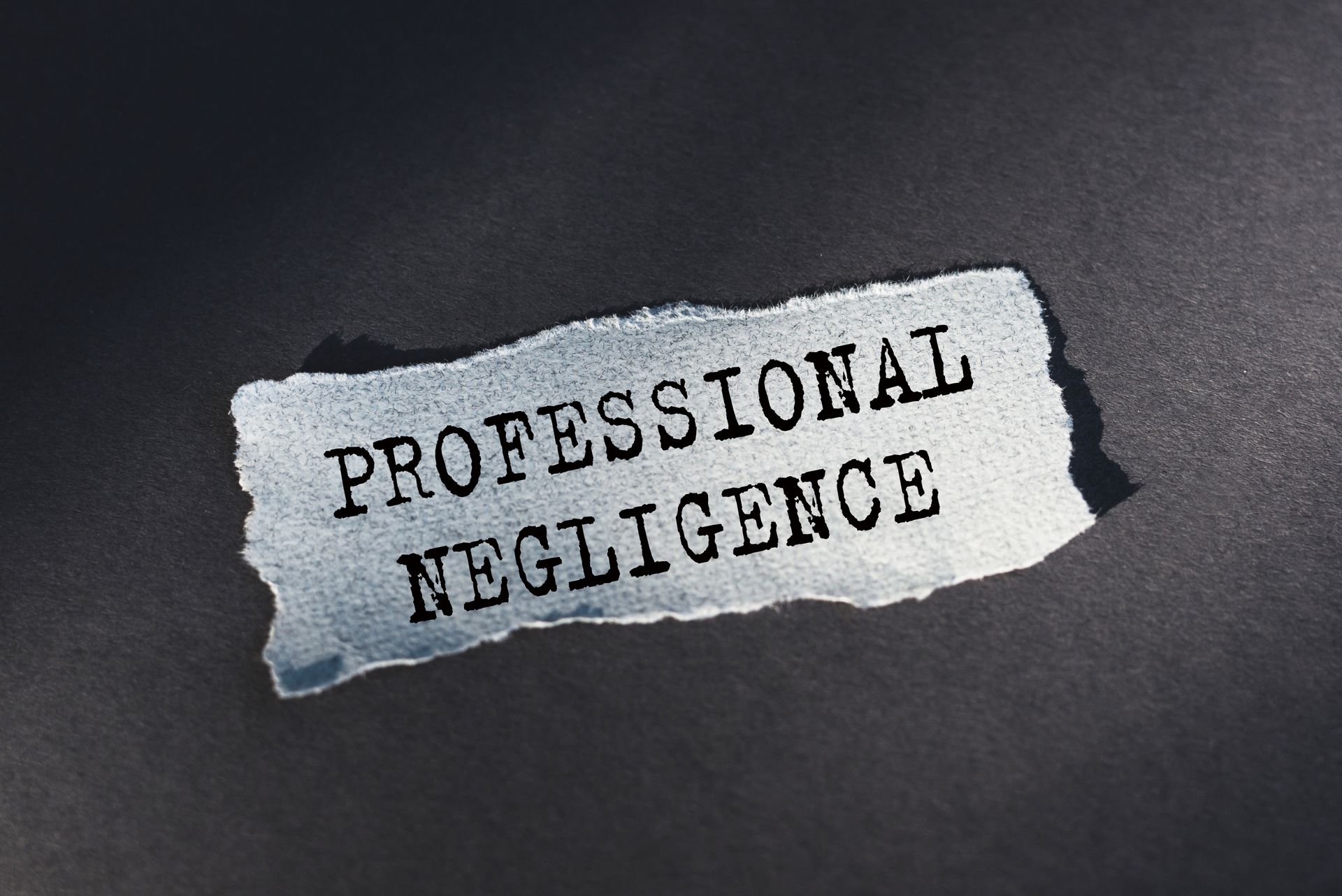Blog

Employee negligence can have significant consequences for businesses, potentially resulting in costly claims, damage to reputation and operational setbacks.
Fortunately, there are effective approaches to discourage employee negligence and handle claims if they do arise.
Employee Negligence and Its Impact on Business Liability
Employee negligence occurs when an employee fails to perform their duties with reasonable care, resulting in harm or loss. Examples can range from minor oversights, like forgetting to secure sensitive documents, to severe incidents, such as driving a fleet vehicle while intoxicated or ignoring safety protocols. The implications of employee negligence may include:
- Financial Loss: Claims stemming from employee negligence can lead to costly legal battles, payouts and increasing insurance premiums.
- Reputation Damage: High-profile negligence cases can harm a company's public image, leading to a loss of trust among customers, partners and potential hires. Clients or vendors may hesitate to engage with a company perceived as having poor standards or safety protocols.
- Operational Disruptions: The fallout from a negligence claim can disrupt daily operations, particularly if investigations or legal proceedings demand substantial time and resources from company leaders.
- Increased Regulatory Scrutiny: Depending on the industry, negligence can invite additional oversight from regulatory bodies, resulting in audits, fines or mandatory corrective actions.
Strategies for Preventing Employee Negligence
Preventing employee negligence is one of the best ways to defend your business against liability claims. Companies can adopt a proactive approach by implementing policies, training and monitoring mechanisms.
Comprehensive Training Programs
Employees should undergo regular training that covers core responsibilities, industry regulations and specific job functions. Training should also address general areas like workplace safety, cybersecurity and customer service. In fields with strict safety protocols, like healthcare or construction, scenario-based training is particularly valuable.
Clear Policies and Procedures
Establishing clear, accessible policies is crucial to setting standards for employee behavior. These documents should outline expected practices, potential consequences for negligence and steps employees can take to prevent errors. Implementing clear procedures not only improves adherence but also provides a reference for employees who might be unsure of the correct action to take in a particular situation.
Use of Technology for Monitoring and Accountability
Modern technology can play a valuable role in reducing negligence, especially in industries with high-risk activities. Some examples include:
- Security Monitoring Software: These tools track data access and ensure that employees do not share or mishandle sensitive information. In industries like finance or healthcare, these tools are essential for maintaining compliance and accountability.
- Automated Task Trackers: For industries with repetitive or procedural work, task trackers can help employees follow through on each required step. These systems improve productivity and reduce the chances of missing critical steps.
Establishing a Culture of Responsibility and Accountability
Creating a culture where employees feel responsible for their actions and comfortable reporting mistakes encourages vigilance and corrective action. This can be achieved through:
- Open Communication: Encourage employees to voice concerns and share suggestions for improving workflows.
- Rewarding Safety-Conscious Behavior: Recognize employees who demonstrate responsibility and attentiveness to reinforce a safety-conscious work environment.
Managing Claims Resulting From Employee Negligence
Despite preventative measures, claims may arise due to employee negligence. Effectively managing these claims is essential to protect your company from potential damage. Below are some steps for handling claims due to employee negligence.
Investigate the Incident Thoroughly
An in-depth investigation is crucial for determining the cause of an incident and assessing the validity of the claim. Collect all relevant documentation, including any witness statements, video footage or internal records, to understand what led to the incident. This investigation not only provides clarity but also demonstrates that your company takes such incidents seriously.
Notify Insurance Providers Promptly
Contact your insurance provider as soon as a claim arises. Timely notification ensures that claims are managed within policy guidelines and increases the likelihood that legal fees and settlements will be covered. Insurance providers can also guide you through the claims process, offering additional support for your response strategy.
Develop a Communication Strategy
Maintain transparent communication with affected parties, including the claimant, employees involved and any stakeholders. Avoid admitting liability prematurely, as this can weaken your position in negotiations or court. Instead, convey that the incident is under investigation and assure all parties of your commitment to rectifying the issue.
Seek Legal Guidance
Legal support is critical to managing claims effectively. An experienced attorney can assess the claim, advise on liability issues and represent your company in negotiations or court. An experienced business liability defense lawyer can also help identify and develop potential defenses.
Document and Improve Procedures
After resolving a negligence claim, review and improve any relevant policies, procedures or training programs to prevent future occurrences. Identifying gaps and making changes not only enhances safety but also reduces the likelihood of future claims. Additionally, demonstrating a commitment to improvement can favorably impact settlements, insurance renewals and regulatory reviews.
Contact Our Skilled Atlanta Business Liability Litigation Attorneys Today
If your business is facing claims due to employee negligence, The Law Office of Cameron Hawkins is here to help.
With extensive experience defending companies against negligence claims, our team will work diligently to protect your business’s financial interests and reputation. Contact us today for a consultation or give us a call at (678) 921-4225.











